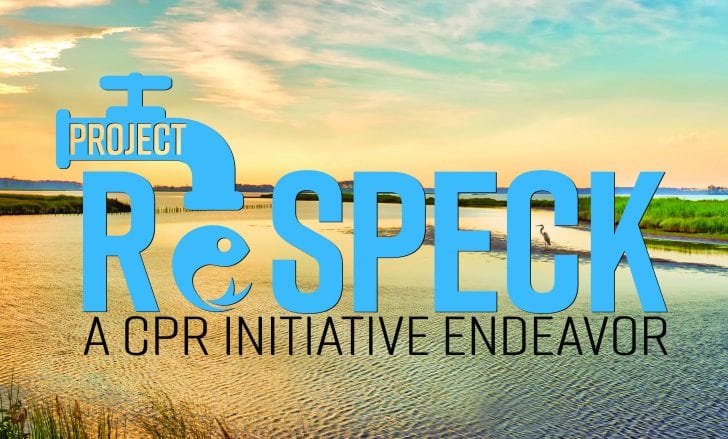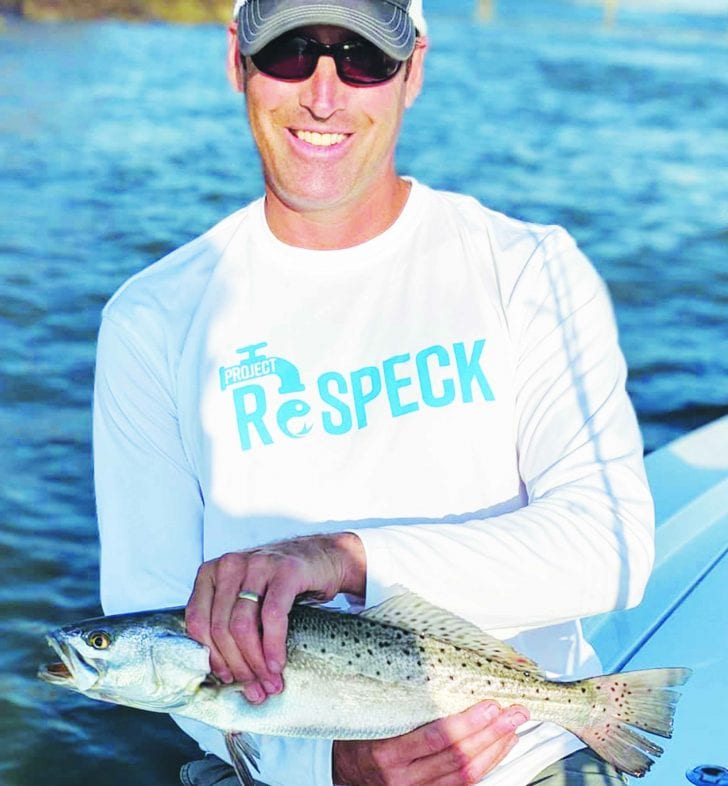The health of the ecosystem and abundance of our natural resources weighs heavy on the minds of some Charleston business owners.
They live by the ebb and flow of the Lowcountry tides and the prosperity of their businesses greatly depend on the prosperity of the life held within its waters.
They wake up each day and do what they have loved to do their whole lives, think about fishing!
Fishing isn’t just a sport to them, it’s a way of life and most have dedicated their lives and businesses around it. One such business owner is the founder of RedFin Charters, Capt. Joel LeVine.
Capt. Joel has been practicing catch and release with his charter company since 2012 and is an avid proponent of conservation focused resource management.
According to LeVine, “RedFin Charters could be taking almost 10,000 fish per year, but we don’t do that, instead we try to come up with ways to put 10,000 fish back.”
Other industry leaders such as Daniel Nussbaum with Z-Man and Eye Strike Fishing’s Dave Fladd and Ralph Phillips dedicate time and resources each year to making fishing better for everyone.
January of 2018 proved to be one of the top 5 coldest months ever recorded in the state of South Carolina
When tragedy hit the South Carolina coast in January, it affected many marine related businesses in the lowcountry, and these guys realized something had to be done.
January of 2018 proved to be one of the top 5 coldest months ever recorded in the state of South Carolina and it had a significant impact on the Lowcountry’s wildlife.
Charleston’s 3rd largest snowfall ever also happened on January 3rd and for almost 2 weeks, water temperatures dropped as lows dipped below freezing for 11 consecutive days.
Many species of marine life were unaffected by the decreasing water temperature, but more susceptible species, like white shrimp, experienced a definite increase in mortality rates.
One species that felt the effect of cold more than most is the speckled seatrout or spotted seatrout, Cynoscion nebulosus.
Speckled seatrout often overwinter in the shallow estuaries in and around Charleston, and many anglers dream of catching them year round. As the mercury plummets, they often migrate to deeper water, but depend on shallow water for their prey.
The survival rate for these fish decreases suddenly and dramatically when water temperatures drop below 47 degrees, and on January 7th, Charleston Harbor experienced a daily average of only 42 degrees Fahrenheit.
During the following days, the South Carolina Department of Natural Resources received 164 reports of fish kills from Little River to Hilton Head Island. The amount of dead seatrout was staggering.
Seatrout are the #3 most caught fish in South Carolina
Although not as big as the event of 2010, where cold took 93% of the population, the fishkill of 2018 will have a tremendous effect, going forward, on the native population of seatrout and the economy that thrives on it.
Seatrout are the #3 most caught fish in South Carolina and have a significant recreational fishery that could be affected for many years.
With a fishkill of this magnitude, industries that rely on the seatrout population could lose a significant portion of their future income.
In mid-January, SCDNR launched a voluntary catch and release program throughout the state, which caught little press, if any.
Inspired by this passive recuperative action, several industry leaders developed a plan to respond to the crisis with action.
In February, RedFin Charters, Z-Man and Eye Strike joined together to create the Community and Professional Response Initiative (CPR Initiative) to provide a mitigation strategy that would help recover the seatrout population.
They also partnered with local fishing clubs such as Charleston Coastal Anglers and the Coastal Conservation Association of South Carolina to generate momentum for the Initiative.
The CPR Initiative was also created to provide an organized response to any future critical issues that impact the Lowcountry and in February of 2018 released this mission statement:
“The mission of the CPR Initiative fund is to provide support for organizations with programs and services focused on the protection, preservation, and sustainability of the diverse saltwater estuaries and ecosystems in and surrounding the South Carolina coastal regions.”
The CPR Initiative’s first undertaking was Project ReSpeck, which successfully raised $25,000 to help mitigate the gruesome 2018 fishkill.
In addition to monetary contributions, each member donated time and resources to promoting the campaign and raising conservation awareness in the community.
The money is designated to purchase speckled sea trout breeding tanks for the Waddell Mariculture Center in Bluffton, which can supplement the wild breeding population with 600,000 – 700,000 fish annually.
The check was awarded to the Waddell Mariculture Center at the recent Coastal Conservation Association’s “Celebrating Conservation” Banquet, held at Shimano Headquarters in Ladson, SC.
Although the next project for the CPR Initiative is currently to be determined, it is clear that when Charleston’s natural resources are in jeopardy we know there is a community with initiative that will respond with help where it is needed.
For more info or to learn how you can help, visit CPRInitiative.org.
~ Chad McPeters



